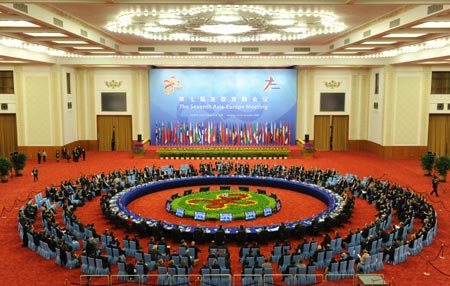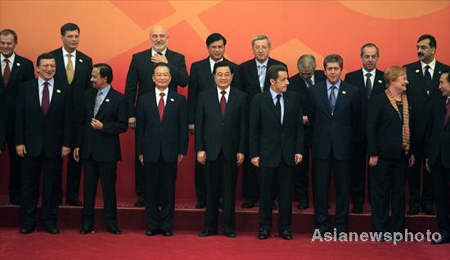By Svenja O'Donnell
Oct. 26 (Bloomberg) -- U.K. Chancellor of the Exchequer Alistair Darling will say this week that the economic crisis will be deeper and longer-lasting that the government first predicted, the Sunday Times reported.
The government hasn't lost control of the public finances, although the crisis has hurt its revenues, Darling will say in a speech at the annual Mais lecture in London on Oct. 29, the newspaper reported, without saying how it got the information.
The U.K. economy shrank in the second quarter, its first contraction in 16 years. Prime Minister Gordon Brown and Bank of England Governor Mervyn King admitted for the first time last week that Britain is heading for a recession, while Charlie Bean, the central bank's governor for financial stability, said in an Oct. 24 interview with the Scarborough Evening News that the turmoil in the banking industry is the worst ever.
The government this month bought majority stakes in Royal Bank of Scotland Group Plc and HBOS Plc, two of the country's biggest lenders, as part of a 500 billion-pound ($793 billion) rescue plan to save the financial system from collapse. The government will formally announce spending plans in Darling's pre-budget report in the next few weeks.
The next 12 months ``will be quite difficult'' for Britons, Communities Secretary Hazel Blears said in an interview on Sky News's Sunday Live television program, adding that the government will seek to help people threatened with repossession.
``There's quite a lot we can do,'' Blears said. ``The fact we've got more influence in the banking sector is a very good thing.''
`Irresponsible Lending'
The government's assurances that banks will offer loans at 2007 rates aren't ``empty words,'' Blears said. ``We won't go back to the days when people could borrow 100 percent or 125 percent mortgages. There was irresponsible lending and people took advantage of that.''
Several Treasury forecasters have revised predictions down, with some expecting the recession to be worse than the last contraction of the early 1990s, the Sunday Times said.
Darling's pledge to increase spending and prioritize housing, energy and small businesses may ``stunt the private sector's recovery once the recession is past'' by putting the government in a ``dominant position,'' a group of economists including Trevor Williams at Lloyds TSB Corporate Markets and Peter Spencer at Ernst Young's ITEM Club, said in a letter to the Sunday Telegraph.
Almost four in five U.K. companies are cutting back on expenses, from hiring staff to Christmas parties, the Institute of Directors said, citing a survey of 1,114 businesses. Four in 10 companies said they had cut back on hiring, 27 percent said they had reduced pay or bonuses and 27 percent said they were spending less on staff entertainment. The survey was conducted in mid- September.
``After 15 years of economic growth the party is over,'' Graeme Leach, the IoD's chief economist, said in an e-mailed statement. ``Budget setting for 2009 is going to be a very tough process in order to squeeze out every possible cost saving.''
To contact the reporter on this story: Svenja O'Donnell in London at sodonnell@bloomberg.net
Read more...










